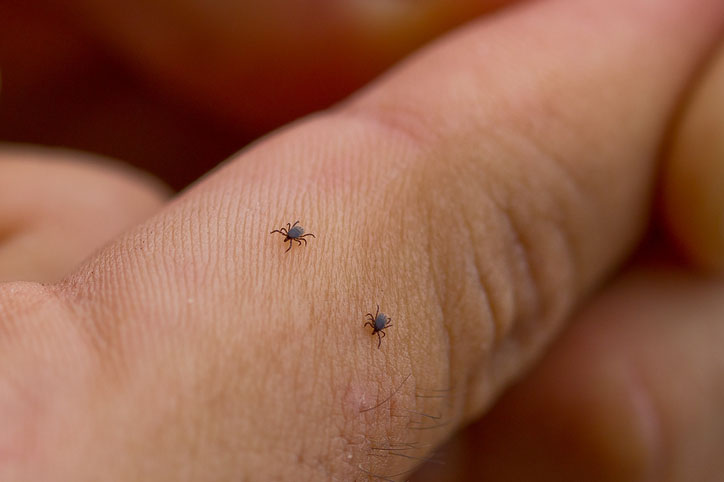Tick Paralysis in Cats
- Brain, Spinal Cord, and Nerve Disorders of Cats
- The Nervous System in Cats
- Parts of the Nervous System in Cats
- Nervous System Disorders and Effects of Injuries in Cats
- The Neurologic Evaluation in Cats
- Principles of Therapy of the Nervous System in Cats
- Congenital and Inherited Disorders of the Nervous System in Cats
- Disorders of the Peripheral Nerves in Cats
- Disorders of the Spinal Column and Cord in Cats
- Dysautonomia in Cats
- Facial Paralysis in Cats
- Central Nervous System Disorders Caused by Parasites in Cats
- Leg Paralysis in Cats
- Meningitis and Encephalitis in Cats
- Motion Sickness in Cats
- Rabies in Cats
- Tick Paralysis in Cats
Also see professional content regarding tick paralysis.
Tick paralysis is a sudden, progressive motor paralysis caused by a salivary toxin that attacks the nervous system. Certain species of ticks are known to cause tick paralysis. People (especially children) and many other animals may be affected. Human cases of tick paralysis caused by the genera Ixodes, Dermacentor, and Amblyomma have been reported in Australia, North America, Europe, and South Africa. These 3 genera plus Rhipicephalus, Haemaphysalis, Otobius, and Argas have been associated with paralysis in animals. Cats seem to be resistant to the disease caused by these ticks, except in Australia where Ixodes holocyclus causes a severe and often fatal paralysis in cats.
Topical treatment with any product to kill attached ticks must only be done with chemicals that are safe for use in cats. In Australia, treatment for Ixodes holocyclus paralysis involves a specific antiserum (tick hyperimmune serum), in addition to treatment to minimize stress and support respiration (Veterinary.heading on page Tick Paralysis in Dogs).
- Brain, Spinal Cord, and Nerve Disorders of Cats
- The Nervous System in Cats
- Parts of the Nervous System in Cats
- Nervous System Disorders and Effects of Injuries in Cats
- The Neurologic Evaluation in Cats
- Principles of Therapy of the Nervous System in Cats
- Congenital and Inherited Disorders of the Nervous System in Cats
- Disorders of the Peripheral Nerves in Cats
- Disorders of the Spinal Column and Cord in Cats
- Dysautonomia in Cats
- Facial Paralysis in Cats
- Central Nervous System Disorders Caused by Parasites in Cats
- Leg Paralysis in Cats
- Meningitis and Encephalitis in Cats
- Motion Sickness in Cats
- Rabies in Cats
- Tick Paralysis in Cats





